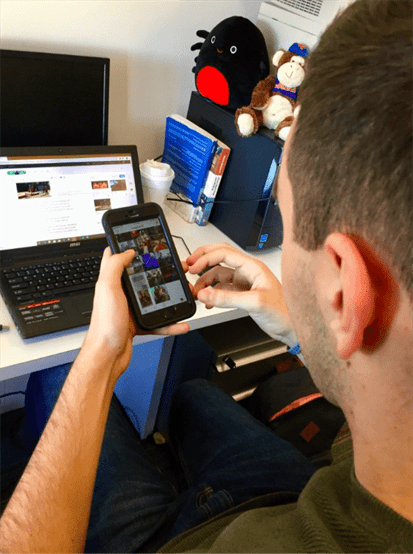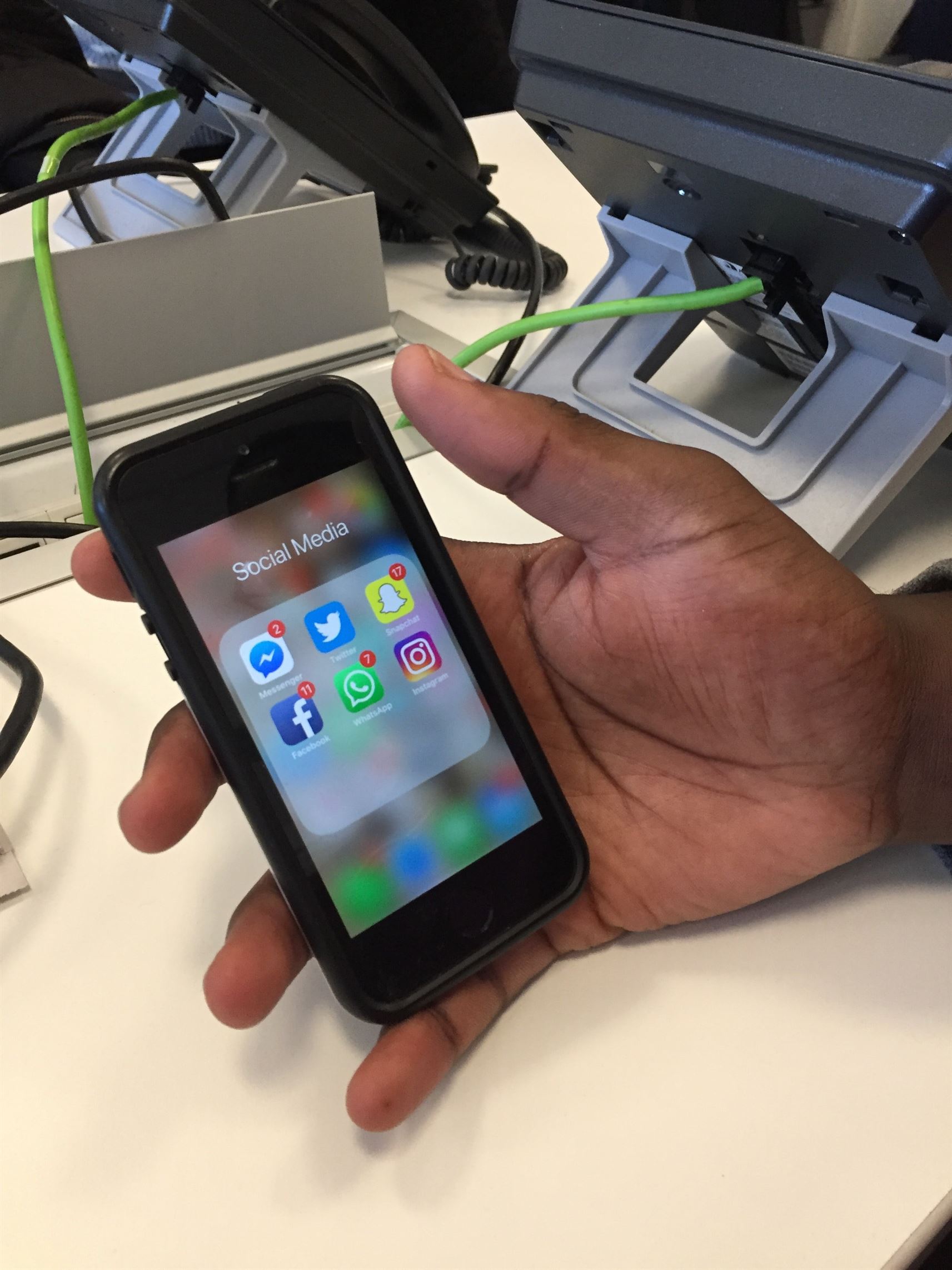Claudine David, a senior animation and illustration major, casually scrolls through Instagram but then pauses on a friend’s post about “Friendsgiving.” She feels hurt to see friends of hers in the post and her fear of missing out (FOMO) starts to kick in.
According to an article written by Allison Abrams for Psychology Today, in a 2015 study on the effects of Facebook use on mental health, researchers at the University of Missouri discovered that regular use could lead to symptoms of depression if the site triggered feelings of envy in the user.
However, those who use the site primarily to feel connected do not experience the negative effects. In fact, when not triggering feelings of envy, the study shows Facebook could be a good resource and have positive effects on well-being.
“I experience FOMO when I least expect it,” David said. “I recognized the people in the [Instagram] story. They were people I talk to whenever I see them, but apparently I’m not best friends with someone unless they post something good about me on social media.”
David believes she is addicted to social media and has gotten emotional about this realization in the past.
“I declare that I hate [social media] and want it gone, yet I keep going back to it,” David said. “It’s like a drug.”
When it comes to popular social networking platforms like Facebook, Instagram, Twitter and Snapchat, most college students are able to see both the positive and negative impacts that may come with everyday use.
Senior communication and media arts major Brielle Forbes says that social media is a place for her to follow who and what she wants, but she recognizes the darker side of the web.
“I try and look at it in a positive light, but there are negative [aspects], such as cyberbullying, catfishing, focusing on how many likes you can get and so on,” Forbes said. “Overall, it does make me happy, and I like getting to see what goes on in the world.”
Stephanie Moscoso, a communications major with a business minor, shared that she has both good and bad social media habits. Moscoso likes to connect with people on social apps whose interests align with hers.
She likes to pick their brains about their careers to find out what they do and how they got to where they are.
“In that aspect, I have to say I leverage from social media by connecting with professionals,” Moscoso said. “But, there is a bad habit I do have, which is spending time on my smartphone when I’m in the presence of other people, especially friends and family. I’m on my phone scrolling through social media when I should be engaged in the people I’m spending time with.”
Psychology Today reported that further studies have shown that the majority of social media users tend to edit and post only their most attractive pictures in an effort to idealize themselves and, researchers believe, to improve others’ impressions of them.
In addition to searching for the latest exercise tips, normally posted by social media influencers and exercise professionals, Moscoso finds that she can easily obtain information from Instagram.
She added that the typical emotion that she associates with social media is happiness, despite sometimes comparing herself to others.
“Seeing people look perfect [on social media] and then shaming [myself] is something that I do experience happening sometimes,” Moscoso said.
She finds that these comparisons often correlate with times that her social media use is heavier than usual.

Senior journalism major Anthony Gabbianelli poses with his iPhone as he looks at his Instagram. Chanila German | The Montclarion
A 2017 LinkedIn article stated that 62 percent of men and 71 percent of women are active on social media with women engaging more with Instagram, Twitter and Pinterest versus men, who tend to dabble in Google+, LinkedIn and YouTube.
Forbes said that she is on Instagram, Snapchat and Twitter everyday. As soon as she gets up in the morning, she checks to see what has been trending on Twitter.
“I look forward to reading the ‘What You’ve Missed Tweets’,” Forbes said.

Dr. Kevin Askew is an industrial-organizational psychologist and professor at Montclair State University.
Photo courtesy of montclair.edu
Kevin Askew, an industrial-organizational psychologist and professor at Montclair State University, studies human behavior at work and the intersection with technology.
Askew suggested that clinical psychology delves deeper into the actual correlation between social media and its effects on the mind.
“Social media is [a] very new and complicated topic, so the long-term effects are probably not well understood,” Askew said.
Sudha Wadhwani, a psychologist at Montclair State who holds a PsyD in Clinical Psychology, said that social media can be a positive tool when used in moderation and in a healthy way, but it is just as important to be wary of overuse.
“It can provide access to support, valuable information, and resources,” said Wadhwani.
Wadhwani believes social media can provide connection with others, but students should still be watchful of their social media use.
“It is important to not use it excessively, as it can impact sleep and time management,” Wadhwani said. “It can also create situations where students can make unhealthy comparisons or feel excluded, or make assumptions. It’s important to be cautious.”



